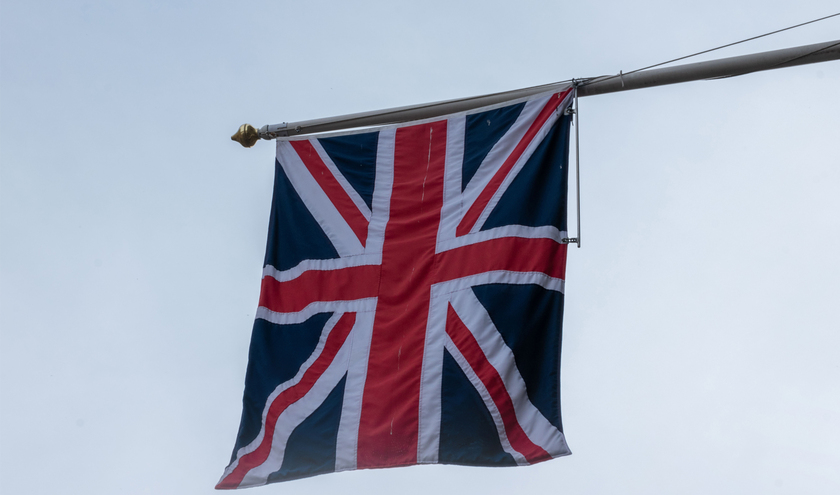Over recent weeks, the flying of St George's flags has sparked sharp debate about pride, identity and freedom of expression in cities and towns across England.
Conflicting opinions on the issue aren't confined to those who support or oppose the red crosses adorning roundabouts, lampposts and buildings.
Councils across the country have also had to grapple with tensions between the views of elected members and council officers.
On one hand, some councillors feel that communities have every right to express their identity and that the flags should remain in place. On the other, there are officers who point to their duty of care towards council workers and residents: a duty which, in some cases, means recommending that the flags come down.
Watching this issue play out in communities I have been proud to serve and continue to champion has made me reflect not just how often local government is asked to navigate charged issues these days, but also how in such situations avoiding unwanted escalation is nearly always down to calm heads and good leadership.
It is important to recognise here that when two perspectives collide, the situation will be unsettling for everyone involved. However, it is often council officers who find themselves in the most difficult position: caught between competing duties, public expectation and the question of how, and when, to act.
That difficulty is often misunderstood and frequently misrepresented.
It's easy to paint the actions of officers as over-sensitive or out of touch with community feeling. But to say that is to overlook the reality that a council isn't just typically one of the largest employers in a community, but also that those employees are the very people every resident relies on to keep daily life working and the environment healthy.
In my career I have worked in councils where anything from a third to the majority of our workforce has lived in or near the neighbourhoods they serve. In some council services, it is migrants who make up a significant part of the workforce. Take social work as an example where the figure is 30%.
This means that council workers are not bystanders to community debates. They experience them first-hand, at work and at home.
With this in mind, it is clear that councils must stay faithful to two responsibilities: to respect the voices of communities expressed through politics, and to protect the people who deliver services in those same communities. The latter cuts to the heart of every employer's duty of care whether they are in the private or public sector.
So how should councils approach this?
At the heart of local government there is a simple truth: our role is to provide safe workplaces, protect talent and deliver the services that keep our communities running. That will always require balancing voices of employees and of politicians with judgement, sensitivity and courage.
By recognising that leadership in local government is as much about tone as it is about decision. When issues are charged with emotion and identity, how leaders speak and act in the first moments can shape whether tension is eased or inflamed. Setting the tone matters for staff, for councillors, and for the communities watching.
The same leaders – officers and politicians – must also remember that language is not neutral. Words carry weight, especially in workplaces that reflect the diversity of the communities they serve. When something is said or done in the public sphere, it resonates inside the organisation too. A casual remark can unsettle; a well-judged message of reassurance can calm and connect. Leaders have to choose their words – and their silences – with care.
Councils must hold fast to their duty of care. It is not about curbing free expression or sanitising public debate. It is about ensuring that the people who deliver services feel safe, respected and able to do their jobs. That means listening early, engaging openly and taking seriously the impact of community tension on staff wellbeing.
When it comes to the roles of politicians and officers, either side must understand that their roles are distinct but complementary. Politicians are elected to reflect community sentiment; officers are appointed to uphold the law, ensure safety and deliver services impartially. Tension between these roles is inevitable but the relationship can still be productive if managed with mutual respect. Neither can pretend the other does not exist.
Finally, preparation is everything. Councils that handle such flashpoints well are those that have invested in relationships before crisis hits: where officers and councillors trust each other enough to speak candidly and act collaboratively. When trust exists, difficult conversations are possible. When it doesn't, even small disputes can spiral.
None of this is easy. In a polarised climate, issues of identity and belonging will continue to surface, whether it's flags, language, or other symbols of community pride. The challenge for councils is not to avoid these moments but to face them with integrity, empathy and confidence.
At the heart of local government there is a simple truth: our role is to provide safe workplaces, protect talent and deliver the services that keep our communities running. That will always require balancing voices of employees and of politicians with judgement, sensitivity and courage.
And that, ultimately, is the test of leadership.
Pam Parkes is president of the Public Services People Managers' Association


